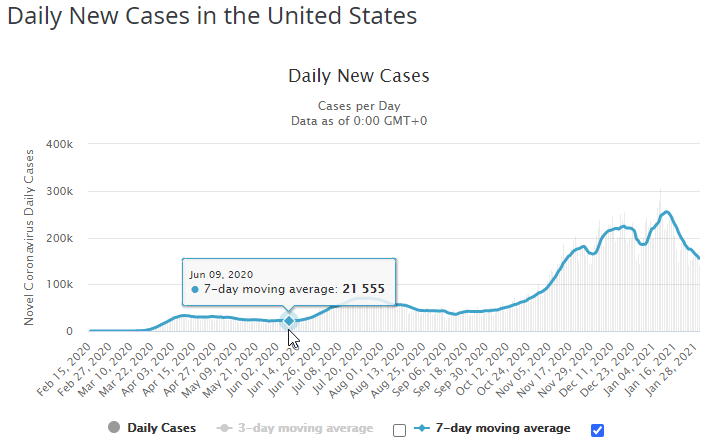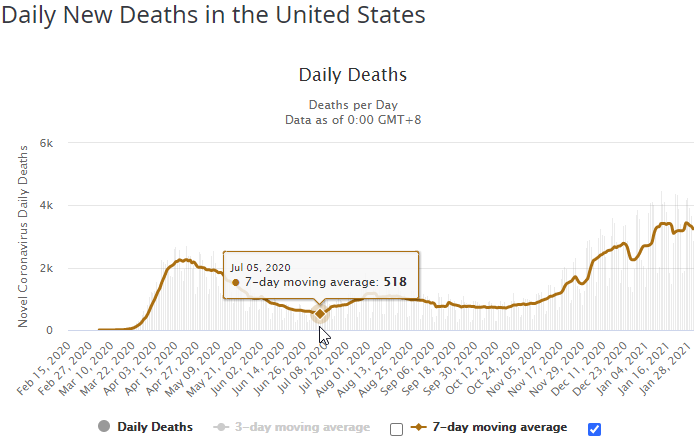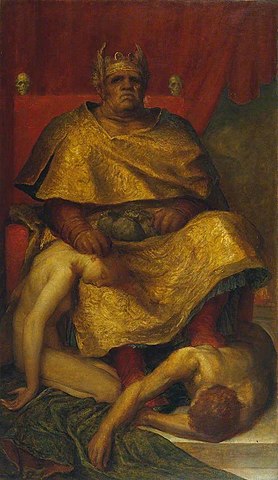
How easy it is to get wrapped up in each cycles of news. There are no shortages of events occurring, nor of analysis and commentary on each event. Perhaps, all too often, it can feel as though we each have to have a strongly argued point of view on each and every occurrence.
In the middle catching myself doing this, on a subject that I am most decidedly not an expert in, I pulled my attention back from the particular story and started thinking about this moment.
What are these, the times in which we live? Who had we hoped to be and who have we become?
My mind went into the not so distant past to try to give some framing to this moment. Each day does not occur in a vacuum. It is the result of all of the days preceding it and has the potential to influence all days after. In thinking of this slightly extended time-frame, I suspect that a major shift has occurred that we may have to grapple with for years to come: When faced with a choice between who we would serve, we chose Mammon.
The framing that came from thinking about this moment is in two main areas, each with two components:
The more I though about how all of this began, what we thought was possible, what we hoped possible, and the path ultimately chosen, the more dispirited I began to feel. I wish I could provide a concrete vision or path forward but, I've discovered, this is my lamentation. Perhaps if hope is to be gleaned from these words, it is perhaps in their contribution towards more fully understanding the problem. Our problems cannot be solved if we do not understand them.
I recall a slow buildup to public awareness of what we now call COVID-19 (SarsCov2) during the early weeks of 2020. And then, for many of us, it seemed to near instantly become a widespread, nationwide emergency. During that time the virus had slowly been moving throughout the country. Limited travel restrictions from China were not sufficient to protect the borders, as European travelers faced few, if any, barriers to entry and the ban on travel from China was not as thorough as political propaganda would lead one to believe. Beyond that, no nationawide and systematic process of screening or quarantining travelers occurred. We remained in the dark and unwilling to take drastic steps early on. After all, a forced quarantine of international travelers can hardly go unnoticed. Drastic, but effective.
On June 24, 2020 the New York Times published this excellent and sobering media timeline (opens in a new tab) showing exactly how the virus gained such a strong foothold in the US in those early weeks and months. It is worth reviewing and I recommend doing so on a desktop, if possible.
However, even with the most efficacious approaches not taken at the earliest stages, there was still a pathway available to prevent catastrophe.
When a virus has nowhere to go, it cannot spread. Hypothetically, if every person in the US were capable of staying exactly where they are at this exact moment and did not move from that spot for four weeks, the virus will be eradicated in all but those who require extensive hospitalization. Obviously, we are not trees and cannot grow roots to hold us in place and provide us with life’s necessities. We are human. We need to eat, move, and approach life with purpose. Remaining still is not something innate to most of us.
It was with the intention of slowing, and potentially halting, the spread of the virus that so many places were shut down and people asked to do everything possible to stay home.
And stay home many of us did. Do you remember that time? Not every state was the same but, for many, mid-March through late April was a time of lock-down and heightened vigilance. Here are a few things I remember from that time:
That was a difficult time for many. Those in AA could not go to in-person meetings that are critical for their recovery. Those who already suffered from loneliness went through even further separation.
Thankfully, at the time, we could see that those sacrifices were working in slowing the spread of the virus. It wasn't a perfect approach, as the classification of essential worker encompassed roughly half of all workers, but the results were clear:

New cases were going down as measures were followed and enough people followed them. In turn, because cases had
decreased, so too had the deaths:

We were slowly moving in a the right direction. A direction that gave hope that the worst was behind us and that, soon, life would return to normal.
Unfortunately, whatever hope was felt during those days has faded just as surely as the seasons in which they lived.
During the several weeks of the lock-downs, it became difficult for people to manage on multiple fronts. Mental health impacts were/are real. Not being able to see an elderly loved one. Not being able to visit our loved ones when ill. Not being able to be present in community with others.
Those early days also had a heightened level of fear and vigilence felt by many, perhaps triggering the same fight or flight responses in moments of extreme danger. That level of heightened anxiety and worry is not mentally or physically sustainable, even if the danger itself has not only not passed, but has actually grown far worse.
I am so tired of having to worry about this pandemic. While I am fortunate enough to work from home, I find the same four walls tiring. Each day blends into the next. When I imagine this moment passing, whenever that is, my heart yearns to hug so many that are close to me tightly and just weep.
I cannot honestly say that I have followed every rule every single day of this crisis, but I have tried my best almost every day. It is hard to ask us to stay apart from one another for so long.
Beyond this level of pandemic fatigue there were also many folks who held a spectrum of beliefs about the virus that ultimately led them to discarding the advise of what those most qualified to dispense that advise.
In addition, there were very real financial impacts to tens of millions of people no longer able to work. While the federal government had given a single relief check ($1,200 per person) and had increased and extended unemployment insurance, many were still left out and facing dire straights.
The unfortunate reality of this is that the political culture in the USA has an unbending ideological opposition to the concept of paying people to stay home and not work even when that would be the least painful way, in the long run, to address the crisis. That ideological dogmatism, even in the face of a once-in-a-century crisis speaks more to a religious faith than a reasoned position.
Religious faith in Mammon.

Our society faced a choice: either sacrifice money and the values indexed in the hallowed temple of the New York Stock Exchange or indiscriminately sacrifice the lives of one another on the altar of the market and, hence, money.
This choice was not an individual choice. I did not choose between earning more money and seeing people die. Our leaders, however, decided on our behalf that the market that already so greatly benefitted history's wealthiest individuals could not be harmed. Ultimately, the choices that our leaders make are our choices, as we sustain the systems that legitimize such leaders. A Yemeni civilian murdered by a US drone is not concerned with whether or not the fire and explosions raining down from the sky were ordered by Bush, Obama, Trump, or Biden. It is the USA who delievered the lethal payload. Me. You. All of us in the US hold responsibility for what is done it our name, be it in Yemen or in our own backyard.
Our nation sold whatever vestiges remained of its soul to Mammon. The trade was for those in the middle to keep limping on, those at the top to soar to ever new heights, and those on the bottom to be further ground down beneath our collective boot. For that result, we were to sacrifice one another.
First by the thousands, then by the tens of thousands, and now by the hundreds of thousands. Mammon's due for whatever blessing was hoped for was every person that fell ill and/or died from the virus because we refused to give the highest value to one another.
It was not inevitable that we would be here, at this awful place.
It did not have to be this way.
If this was a cosmic test of our professed morals, then we have failed.
We failed and those lives are now forever lost to this world. I once read that, on average, for every person that dies the circle of deep grief is nine people. I have felt the sorrow of a loved one passing suddenly and far too early. The grief that overwhelms and collapses the body.
So much sorrow introduced into this world that could have been avoided.
That sorrow, too, is part of Mammon's due.
We chose not to take care of one another. For money.
Our national heart has grown cold. How could it not when, deep down, we know that so many died that did not have to? I feel the struggle to remain tethered to my humanity. I cannot feel the overwhelming grief I once did. As the number of dead continues to rise, I find myself growing more and more numb. Recognizing that numbness and not wanting it isn't enough to reintroduce feelings I remember once feeling so strong. Perhaps such feelings are there, but buried; waiting for the days to come when I can hold those I love tightly and weep.
As I look at some of the current news stories about our society, and my own recent interactions and thought processes, I have concluded that our nation surrendered it's soul fully to Mammon and now all that remains is money, and fighting one other for it.